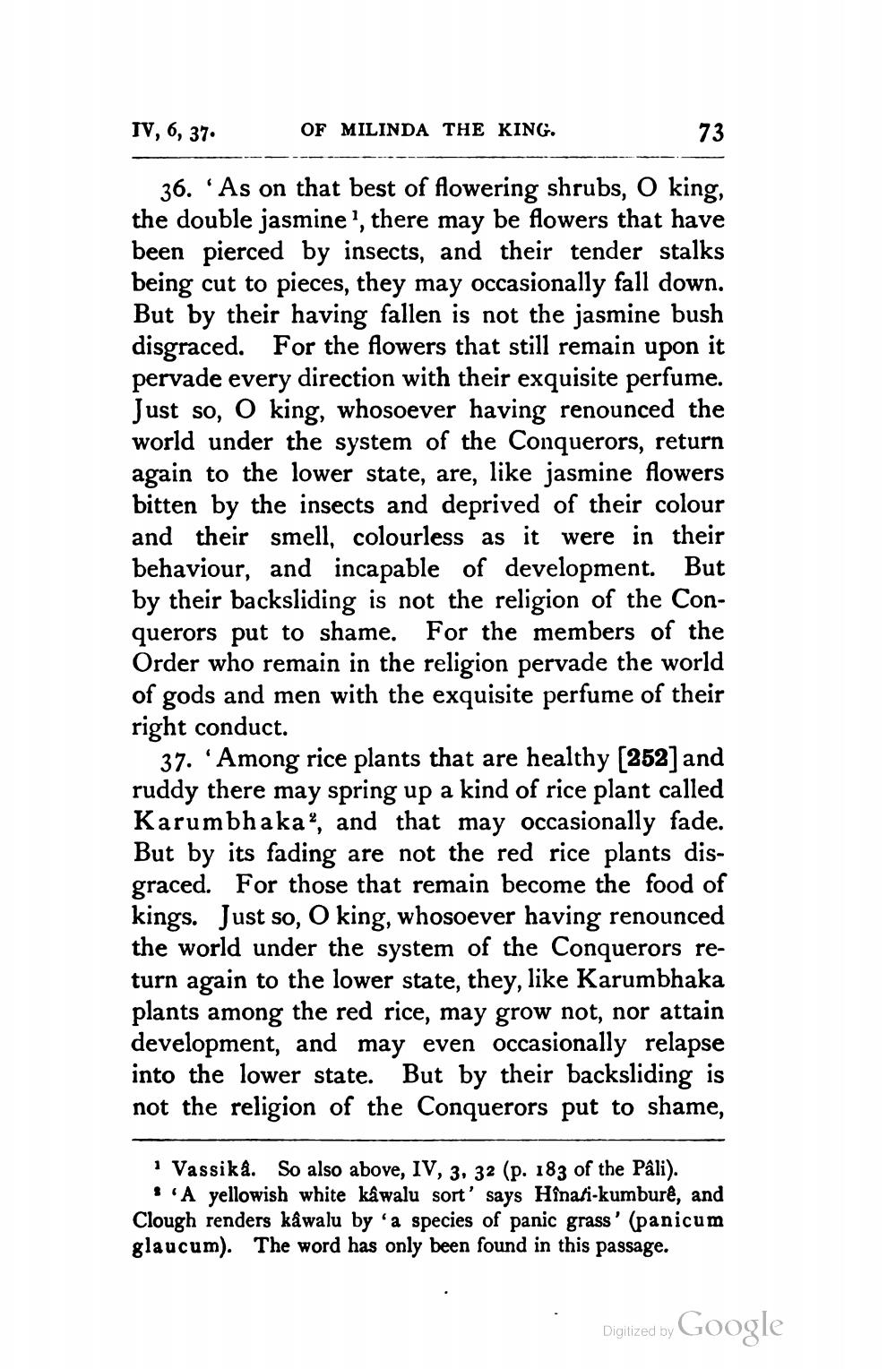________________
IV, 6, 37.
OF MILINDA THE KING.
73
--
--
36. As on that best of flowering shrubs, O king, the double jasmine', there may be flowers that have been pierced by insects, and their tender stalks being cut to pieces, they may occasionally fall down. But by their having fallen is not the jasmine bush disgraced. For the flowers that still remain upon it pervade every direction with their exquisite perfume. Just so, O king, whosoever having renounced the world under the system of the Conquerors, return again to the lower state, are, like jasmine flowers bitten by the insects and deprived of their colour and their smell, colourless as it were in their behaviour, and incapable of development. But by their backsliding is not the religion of the Conquerors put to shame. For the members of the Order who remain in the religion pervade the world of gods and men with the exquisite perfume of their right conduct.
37. 'Among rice plants that are healthy (252) and ruddy there may spring up a kind of rice plant called Karumbhakaļ, and that may occasionally fade. But by its fading are not the red rice plants disgraced. For those that remain become the food of kings. Just so, O king, whosoever having renounced the world under the system of the Conquerors return again to the lower state, they, like Karumbhaka plants among the red rice, may grow not, nor attain development, and may even occasionally relapse into the lower state. But by their backsliding is not the religion of the Conquerors put to shame,
1 Vassika. So also above, IV, 3, 32 (p. 183 of the Pâli).
A yellowish white ka walu sort' says Hinati-kumbure, and Clough renders kawalu by 'a species of panic grass' (panicum glaucum). The word has only been found in this passage.
Digitized by Google




